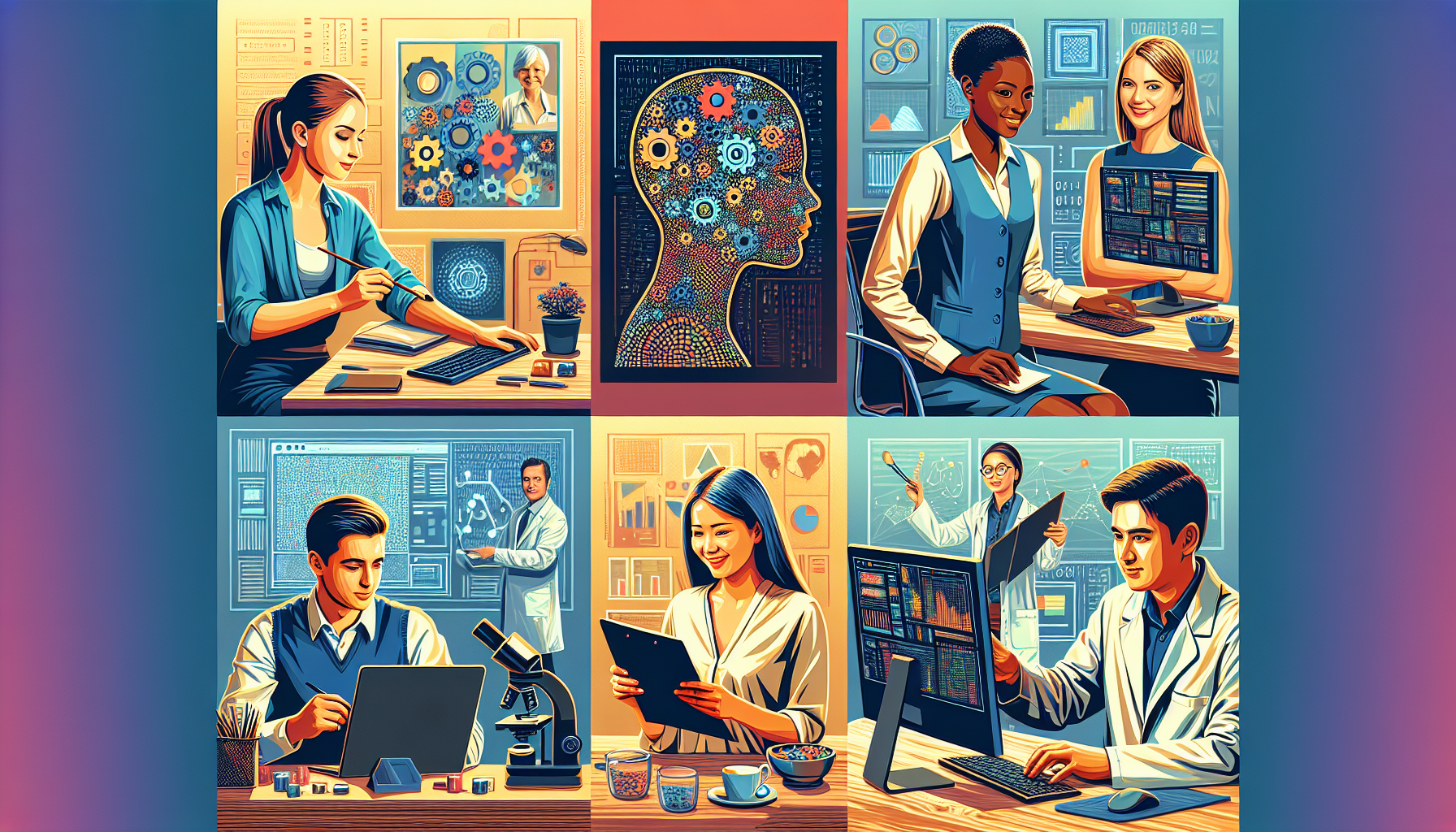The Future of Work: How Procter & Gamble is Shaping Careers in a Digital Age

The digital revolution has fundamentally altered the landscape of business operations and employee engagement. Recognizing this shift, P&G has made significant investments in digital transformation, integrating advanced technologies into its everyday operations. The company has embraced data analytics, cloud computing, and machine learning to enhance its operational efficiency and equip its workforce with the necessary skills to thrive in a digital-first environment. For instance, P&G has implemented extensive training programs focused on digital literacy. Employees are encouraged to participate in workshops and courses aimed at equipping them with the skills to leverage digital platforms effectively. This emphasis on continuous learning fosters a culture of innovation, enabling staff to streamline processes and drive performance. According to a P&G internal survey, over 80% of employees reported feeling more competent in their roles after participating in digital training programs, showcasing the effectiveness of these initiatives.
Upskilling for the Future
As technology continues to evolve, so too do the skills required for success in the workplace. P&G recognizes the importance of upskilling its workforce to meet these changing demands. The company offers a plethora of professional development programs that provide employees with the tools needed to navigate emerging technologies and industry trends. A prime example of P&G’s commitment to upskilling is its partnership with external educational institutions. This collaboration allows employees to pursue further education in high-demand fields such as data science and digital marketing. A notable success story is that of Maria, a marketing associate who participated in a digital marketing boot camp offered by P&G. Through this program, Maria gained advanced analytics skills that enabled her to optimize marketing campaigns, resulting in a remarkable increase in consumer engagement. Maria’s experience exemplifies P&G’s dedication to not only preparing employees for current roles but also investing in their long-term career potential.
Remote Work: Flexibility and Productivity
The COVID-19 pandemic served as a catalyst for the widespread adoption of remote work, and P&G seized this opportunity to implement flexible work policies that prioritize employee well-being and productivity. The company has developed a hybrid work model that allows employees to choose how and where they work, fostering a balance that enhances job satisfaction and performance. P&G’s approach to remote work aligns with a broader trend in the corporate world, where flexibility has become essential for attracting and retaining talent. Employees now have the freedom to work from home or utilize co-working spaces, enabling them to create work environments that cater to their individual preferences and needs. Research indicates that remote workers often report higher productivity levels and job satisfaction, underscoring the benefits of P&G’s flexible work policies.
Integrating AI into Everyday Roles
Artificial intelligence (AI) is revolutionizing industries, and P&G is leveraging its capabilities to enhance employee efficiency and effectiveness. By integrating AI into various functions, the company is automating routine tasks, freeing employees to focus on more strategic initiatives. For instance, AI-driven tools are utilized in supply chain management to predict demand fluctuations, allowing teams to make informed decisions rapidly. P&G is also fostering a collaborative mindset regarding AI, encouraging employees to view these technologies as partners rather than competitors. Training programs are available to help employees understand how to work alongside AI tools, promoting innovation and adaptability. This proactive approach ensures that employees feel empowered to utilize AI to enhance their work, mitigating fears of job displacement and fostering a culture of continuous improvement.
As Procter & Gamble continues to navigate the complexities of the digital age, its commitment to shaping the future of work is clear. By investing in upskilling, embracing remote work, and integrating AI into everyday operations, P&G is not only preparing its workforce for the challenges ahead but also setting a standard for other organizations to emulate. The company's innovative practices serve as a compelling case study on how organizations can successfully adapt to digital transformation while fostering a culture of growth and resilience. Looking to the future, it is evident that companies prioritizing innovation, flexibility, and employee development will lead the way in creating engaging and dynamic work environments. P&G's forward-thinking strategies reflect a deep understanding of the evolving workplace landscape, positioning the company as a leader in shaping careers in the digital age. As employees at P&G continue to embrace these transformative changes, they are not just building their careers; they are becoming integral players in the future of work.
Digital Marketing Analyst
Procter & Gamble, Unilever, Johnson & Johnson
Core Responsibilities
Analyze and interpret marketing data to assess campaign performance and customer engagement.
Develop insights and recommendations based on data trends to enhance marketing strategies.
Collaborate with cross-functional teams to optimize digital campaigns using analytics tools.
Required Skills
Proficiency in data analytics tools (e.g., Google Analytics, Tableau).
Strong understanding of SEO/SEM strategies and digital marketing channels.
Excellent communication skills for presenting data-driven insights.
Data Scientist in Consumer Insights
Procter & Gamble, Nielsen, Kantar
Core Responsibilities
Utilize machine learning algorithms to analyze consumer behavior and market trends.
Design and conduct experiments to validate hypotheses about customer preferences and purchasing decisions.
Collaborate with marketing and product development teams to inform business strategies.
Required Skills
Expertise in programming languages such as Python or R, and data manipulation tools like SQL.
Strong statistical analysis skills and experience with data visualization software.
Ability to translate complex data findings into actionable business strategies.
Supply Chain Analyst
Procter & Gamble, Coca-Cola, Amazon
Core Responsibilities
Monitor supply chain performance metrics and identify areas for improvement.
Collaborate with suppliers and internal teams to optimize inventory levels and reduce costs.
Utilize predictive analytics to forecast demand and enhance supply chain efficiency.
Required Skills
Strong analytical skills with experience in data analytics tools (e.g., SAP, Oracle).
Knowledge of supply chain management principles and practices.
Excellent problem-solving and communication skills for cross-departmental collaboration.
AI Integration Specialist
Procter & Gamble, IBM, Accenture
Core Responsibilities
Work with teams to identify processes that can be enhanced through AI and automation.
Develop and implement AI solutions that improve operational efficiency and decision-making.
Provide training and support to employees on how to best utilize AI tools in their roles.
Required Skills
Strong understanding of AI technologies and their applications in business.
Experience with programming languages relevant to AI (e.g., Python, Java).
Excellent interpersonal skills to facilitate training and collaboration.
Remote Work Coordinator
Procter & Gamble, Microsoft, Salesforce
Core Responsibilities
Develop and implement policies and programs that support remote work flexibility.
Monitor employee engagement and productivity metrics in a hybrid work environment.
Organize training and resources to help employees adapt to remote work tools and best practices.
Required Skills
Strong organizational and project management skills.
Familiarity with remote work technologies (e.g., Zoom, Slack, Asana).
Excellent communication and interpersonal skills to foster a virtual workplace culture.


